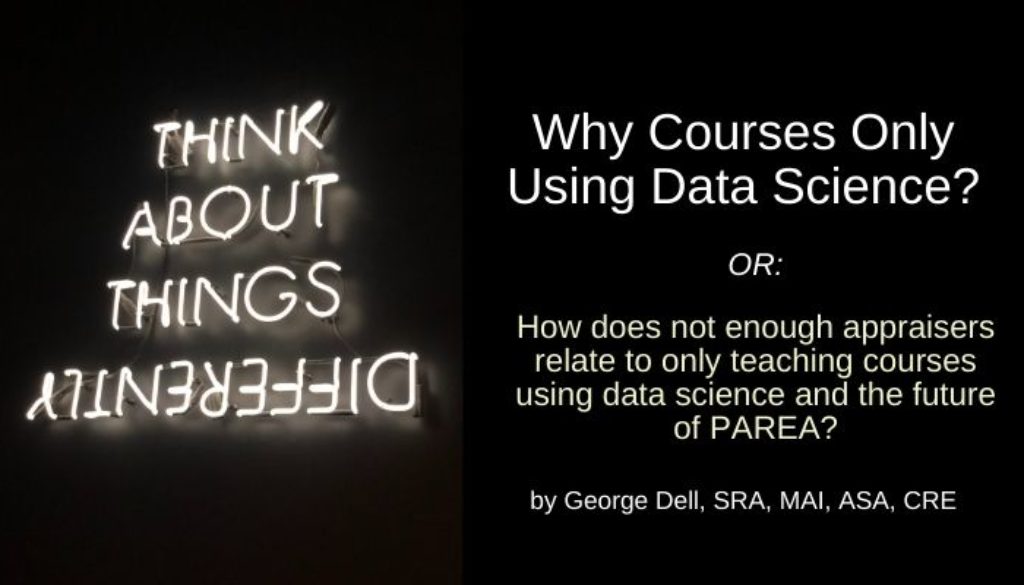Many of you ask why we only teach courses using a data science approach to valuation. The answer is quite simple:
- It’s comprehensive, covering existing aspects of valuation.
- It sharpens the judgment involved with traditional methods.
- It increases usefulness, enabling appraisers to provide more than one service.
Teaching only data science is also the topic of a prior Analogue Blog (June 30, 2021). Our short posts usually start with an outline with two or three points, but that post started with a series of one-word bullet points, and then, wouldn’t stop!
The list went like this: 21 words, 21 ways in which modern professional analysis (data science) is superior or preferred to traditional, judgment-based methods.
Too many words. No room left to write. It ran off the page.
That’s why today we will only focus on one limited issue from that list (which itself is multidimensional): Not enough appraisers!
What does this have to do with why we only teach data science courses?
One of the solutions offered by our vintage professional groups is PAREA (Practical Applications of Real Estate Appraisal), initiated by the Appraisal Foundation.
PAREA is intended to replace traditional trainee field experience with non-field work set up to mimic field experience. Presumably this ‘practical’ approach can replace traditional training in how to:
- Identify subject features;
- Pick probable comps;
- Look at the comps;
- Adjust the comps;
- Reconcile.
The ‘reconcile’ step attempts to explain why the comps produce different results. (Or why the three ‘approaches’ give different results.)
In the past, the introductory courses offered by the Appraisal Institute (and others) were divided into two: One course focused on principles. The second focused on practices using brief case studies with real problems to be solved from a practical point of view. The material was essentially the same in both courses, but the ‘practice’ course included a bit more detail, as well as more generality given the limitations of the difficult, sparse data available in those days.
And what does this have to do with why we only teach data science courses?
The difference now is that the PAREA course(s) will be replacing all or part of the field experience required for licensing in our 54 separate and distinct licensing jurisdictions.
Concurrently, exceptions to actual property inspections also continue to grow. These comprise:
- AVMs (automated algorithms)
- Hybrids (second-person inspections)
- Desktops (no inspection)
- Evaluations (by non-appraisers)
The ‘shortage’ of appraisers will eventually turn into an excess of appraisers. Gresham’s Law will reinstate itself. Good appraisers will continue to be driven out by cheap appraisers.
And the Public Good will suffer. Is there a pattern here?

September 29, 2021 @ 1:49 pm
Yes, definitely a pattern.